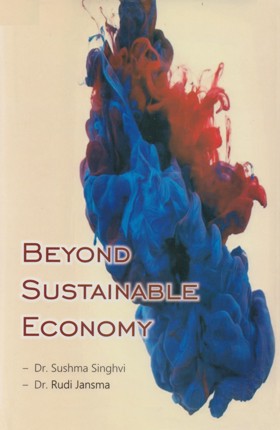Note by the editor: Though this article is not directly linked to the concept of aparigraha, the Islamic concept of non-grasping can not be seen apart from an understanding of the Islamic system of justice. Therefore we include this article here in relation to the previous article.
Justice is one of the basic commands of Islam. In the Quran, giving command in this context, Allah has said, "For sure, Allah commands you to do justice" (Surah Nahal, A. 90). This is the aphorism that is so completely absorbed in Islamic traditions that Muslims all around the world listen to this aphorism in the preceding obligatory address (khutba) of the Friday Namaz (prayer); in fact, the Friday address ends with this aphorism.
According to Islamic teachings the term justice has a wide meaning and many nuances. From the angle of justice no one has the right to become covetous and accumulate possessions. This concept has a deeper meaning than equanimity and equality. Justice is that everyone should be given what is best suitable for him. Justice is associated with speech and behavior. Its relationship with judgment is common and well known. Justice in speech means 'speak what is right'. It is mentioned in the Quran: "... and whenever you speak, speak right and correct..." (Surah Anaam, A. 103). Justice in behavior means to behave with others as they deserve. This applies not just for humans, it in fact includes every living being and all other things in the world. In other words, attitude towards everyone and everything should be what he or it is worthy of. Addressing Momins (followers of Islam) the Quran states:
"O believers! Be perpetrators of justice." (Surah Nisa, A. 135). This aphorism commands to establish a system based on justice, where justice pervades every dimension.
The popular meaning of justice is related to jurisprudence. In this context there is a clear Islamic command that it is essential to establish justice in society. Therefore it is essential for every society to have a robust judicial system, where justice is easily available to every sufferer of tyranny and everyone gets his due right. In this sense justice is the opposite of tyranny and injustice.
In Islamic jurisprudence some basic aspects are very important; first is that to dispense justice is a clear command of Allah. That is possible only when the person occupying the chair of justice, that is the judge or Kazi, is endowed with a feeling of awe for Allah and for accountability before higher authority. Therefore, the place of a righteousness-loving Kazi and ruler is very high in proximity to Allah. An unjust Kazi or ruler is said to be destined to go to hell after his death.
The second aspect is that while dispensing justice, under no circumstance there should be any discrimination between one's own and others. Doing that is against the fundamental spirit of justice. The Quran incontrovertibly states "... and whenever you speak, speak right and correct without distinction, even when it is against your own relative." (Surah Anaam, A. 153). The Quran also states that even if the defendant is your enemy, speak of justice and do justice to him. Your animosity towards any caste or creed should not force you to do injustice. You should certainly do justice. (Surah Mayada, A. 8).
The third aspect is that before the seat of justice both king and people, strong and weak are the same. In fact, there the weak should get courage to feel himself strong. The second Khalipha of Islam, Hazrat Umar Farooq (Razi) wrote to his Kazis that in your meeting or assembly the strong should not get precedence over the weak. In the history of Islamic justice there are many incidents where the ruler of the time was put in the witness-box of the court along with the plaintiff. Not just this, even the norm of the Khaliphas was that if someone filed a case against them, they would go and stand in the Kazi's room along with the plaintiff. Once, in the period of Prophet Muhammad (Peace be upon him) a lady from an aristocratic family was apprehended on charges of theft. When she was sentenced to punishment people kept on approaching the judge for a favor to her. The Prophet (Peace be upon him) got very angry and said that had it been his own daughter, Fatima, he would have sentenced her to the same punishment.
The fourth aspect is that the procedure of getting justice should be easy and cheap. Therefore it is said to be the duty of the government to ensure justice for people. Initially when justice was dispensed by the rulers themselves, such a system was in force that common men could easily approach them for justice.
It is a vital part of dispensing justice that in order to prove one's right, truthful evidence is given. False evidence may not be used either to open the way for atrocities or deprive people of their rights. Islam has ordained for giving truthful evidence and pronounced giving false evidence to be a great sin. In the Quran Allah has commanded that you should become one to stand for Allah and giver of just evidence (Surah Mayada, A.8). The Prophet of Islam, Hazrat[2] Muhammad (Peace be upon him), while warning against the great and devastating sins, has included false evidence among the sins as great as poly-theism (shirk[3]), causeless murder and the like.
In the same way the system of justice ensuring everyone's rights also includes the provision that no one will transgress the right of others in order to hoard essential goods. Also that he will provide part of his possessions for fulfilling needs of others.
 Dr. Rudi Jansma
Dr. Rudi Jansma
 Prof. Akhtarul Wase
Prof. Akhtarul Wase
